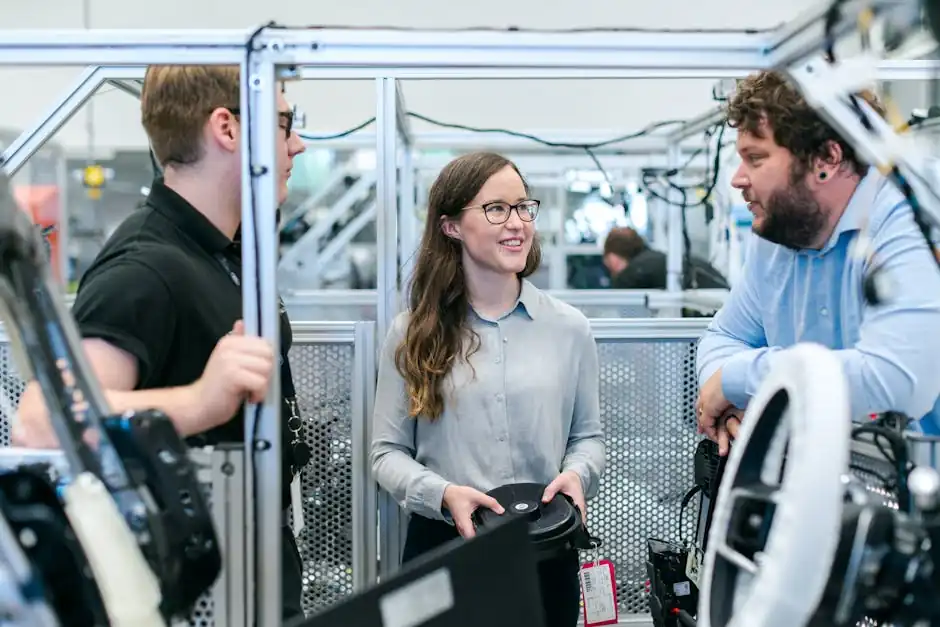Automotive Industry Statistics Unveiled

Buckle up, folks! Today we're diving into the world of automotive industry statistics. From the latest trends shaping the sector to the economic impact on a global scale, we'll uncover it all. So, grab your keys and let's hit the road!
When it comes to the automotive industry, there's no shortage of data to sift through. Let's start by taking a look at some current trends that are driving change in the sector. Shift to Electric Vehicles is gaining momentum as consumers become more environmentally conscious and technology advances. Additionally, the Rise of Autonomous Driving Technology is reshaping how we think about transportation.
Moving on to the economic impact of the automotive industry, it's clear that this sector plays a significant role in global GDP. Not only does it contribute substantially to economic growth, but it also has a major influence on job creation and employment trends.
Shifting gears to consumer behavior and market dynamics, preferences in car buying are constantly evolving. With digital transformation revolutionizing sales processes, dealerships are adapting to meet changing consumer demands.
Geographical insights reveal interesting trends in auto manufacturing. While leading countries continue to dominate vehicle production, emerging markets are climbing the ranks and making their mark on the industry.
However, it's not all smooth sailing for the automotive sector. Environmental regulations and supply chain disruptions pose significant challenges that manufacturers must navigate in order to stay competitive in today's rapidly changing landscape.
Current Trends Shaping the Automotive Sector

Shift to Electric Vehicles
The automotive industry is experiencing a significant shift towards electric vehicles (EVs) as consumers become more environmentally conscious and governments implement stricter emissions regulations. According to recent statistics, global sales of EVs have been steadily increasing, with projections showing a continued upward trend in the coming years. This shift is not only driven by environmental concerns but also by advancements in battery technology, making EVs more practical and affordable for consumers.
Rise of Autonomous Driving Technology
Another key trend shaping the automotive sector is the rise of autonomous driving technology. With major players in the industry investing heavily in research and development, self-driving cars are no longer just a concept but a reality on the roads today. Statistics show that autonomous vehicles are becoming increasingly popular among consumers due to their potential to improve road safety, reduce traffic congestion, and enhance overall driving experience. As this technology continues to evolve, we can expect to see more autonomous features integrated into traditional vehicles in the near future.
Economic Impact of the Automotive Industry
The automotive industry plays a significant role in the global economy, contributing to various aspects such as GDP and employment trends.
Contribution to Global GDP
According to recent statistics, the automotive industry contributes a substantial amount to the global Gross Domestic Product (GDP). In fact, it is estimated that the industry accounts for X% of the world's GDP. This highlights the importance of the automotive sector in driving economic growth and development on a global scale.
Job Creation and Employment Trends
One of the key indicators of the automotive industry's economic impact is its role in job creation and employment trends. The industry provides millions of jobs worldwide, spanning across various sectors such as manufacturing, sales, marketing, and research & development. In fact, it is estimated that the automotive industry employs over X million people globally.
As we delve deeper into the statistics surrounding the economic impact of the automotive industry, it becomes clear that this sector is not only vital for driving economic growth but also for providing livelihoods to millions of individuals around the world.
Consumer Behavior and Market Dynamics
Consumer behavior plays a crucial role in shaping the automotive industry. Understanding the preferences of car buyers is essential for automakers to stay competitive in the market.
Preferences in Car Buying
- Fuel Efficiency: With rising concerns about environmental sustainability, consumers are increasingly opting for fuel-efficient vehicles.
- Safety Features: Safety has become a top priority for car buyers, leading to an increased demand for vehicles with advanced safety features.
- Technology Integration: Consumers are looking for cars that offer seamless integration with their digital devices, such as smartphones and smart home systems.
- Sustainability: The shift towards eco-friendly practices has influenced consumer choices, with many opting for electric or hybrid vehicles.
Impact of Digital Transformation on Sales
The digital transformation has revolutionized the way cars are bought and sold. Online platforms and digital marketing strategies have significantly impacted sales in the automotive industry.
"Digital platforms have made it easier for consumers to research and compare different car models before making a purchase decision."
"Social media and online advertising have become key tools for automakers to reach out to potential customers and promote their products."
"E-commerce platforms have also gained popularity, allowing consumers to buy cars online without visiting a physical dealership."
Geographical Insights in Auto Manufacturing
When it comes to the automotive industry, geographical location plays a crucial role in determining production and market trends. Let's take a closer look at some key insights into auto manufacturing around the world.
Leading Countries in Vehicle Production
-
China: As the world's largest automotive market, China also leads in vehicle production. With a growing middle class and increasing demand for cars, China continues to dominate the global auto manufacturing sector.
-
United States: The US has long been a powerhouse in automobile production, with Detroit being known as the Motor City. American automakers such as Ford, General Motors, and Chrysler have made significant contributions to the industry.
-
Japan: Home to renowned car manufacturers like Toyota, Honda, and Nissan, Japan is another key player in vehicle production. Japanese automakers are known for their innovation and high-quality vehicles.
-
Germany: Known for its luxury car brands such as BMW, Mercedes-Benz, and Audi, Germany is a major player in the automotive industry. German engineering is highly regarded worldwide.
Emerging Markets Climbing the Ranks
-
India: With a rapidly growing population and increasing disposable income levels, India has emerged as a significant player in auto manufacturing. Companies like Tata Motors have made their mark on the global stage.
-
Brazil: South America's largest economy, Brazil has also seen growth in its automotive sector. Brazilian automakers like Fiat and Volkswagen have established themselves both domestically and internationally.
-
Mexico: As a key hub for automobile production due to its proximity to the US market, Mexico has become an important player in the industry. Many major automakers have set up manufacturing plants in Mexico.
In conclusion, understanding the geographical insights into auto manufacturing can provide valuable information about market trends and opportunities within the automotive industry.
Challenges Facing the Automotive Industry Today

Environmental Regulations and Compliance
The automotive industry is currently facing challenges related to environmental regulations and compliance. With increasing concerns about climate change and pollution, governments around the world are implementing stricter regulations on emissions and fuel efficiency standards for vehicles. Automakers are under pressure to develop more environmentally friendly vehicles to meet these regulations, which can be costly and time-consuming.
Supply Chain Disruptions and Their Consequences
Another major challenge facing the automotive industry is supply chain disruptions. The global nature of the industry means that automakers rely on a complex network of suppliers from around the world. Disruptions in the supply chain, such as natural disasters, political instability, or trade disputes, can have serious consequences for production schedules and profitability. Automakers must carefully manage their supply chains to minimize these risks and ensure a steady flow of parts and materials.
"Environmental regulations and compliance as well as supply chain disruptions are two key challenges that the automotive industry is currently grappling with."
Conclusion
And there you have it - a comprehensive look at automotive industry statistics that have been unveiled for all to see. From electric vehicles to job creation trends, this sector is constantly evolving and shaping our world in more ways than one. So next time you hit the road, remember these insights and keep an eye out for what lies ahead in this dynamic industry!